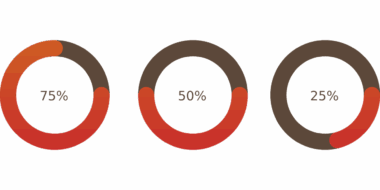Sleep Metrics Every Fitness App Should Provide
Understanding sleep metrics is vital for any fitness application since it directly affects recovery, performance, and overall health. First and foremost, a comprehensive sleep tracking feature should provide insights into total sleep duration. Users benefit from knowing whether they achieved enough sleep based on individual needs. Similarly, the app should calculate the number of sleep cycles, which typically includes light, deep, and REM stages. This helps users understand their sleep quality and efficiency better. Moreover, insights into the time taken to fall asleep can aid users in identifying patterns that affect their rest. Highlighting disturbances throughout the night, such as wake-ups or restlessness, offers clarity on how well users sleep. Additionally, integrating smart alarms can enable users to wake up at the optimal time during their sleep cycle, feeling more refreshed. Lastly, daily tips based on sleep performance can help users further improve both their sleep and fitness routine. In conclusion, fitness apps that prioritize comprehensive sleep metrics cater effectively to their users’ recovery needs, enhancing both health and well-being.
The Importance of Sleep Quality Metrics
A key component of effective sleep metrics is focusing on sleep quality, not just quantity. Metrics such as sleep latency, which indicates how long it takes to fall asleep, can guide users in improving bedtime routines. Furthermore, the percentage of time spent in each sleep stage serves as an essential measure of restorative sleep, letting users know if they engage in adequate REM or deep sleep cycles. Additionally, the variability in sleep patterns helps identify consistent issues with sleep duration and quality. Moreover, a feature tracking sleep environment conditions can also be essential. Factors like room temperature, noise levels, and light exposure can significantly impact sleep quality. As a result, incorporating these environmental indicators can empower users to create an optimal sleeping environment. The fitness app should provide insights on how these environmental factors affect sleep metrics over time. By visualizing this data, users can adjust their habits accordingly, ensuring better recovery. Ultimately, apps that highlight quality metrics deepen users’ understanding while enhancing their overall fitness journey.
Tracking nightly awakenings is equally important in assessing sleep quality directly. Users should easily access data on how often they wake up during the night, alongside the duration of these awakenings as it affects restorative deep sleep. In addition to awoken states, an analysis of sleep continuity helps users recognize patterns that may cause disruptions. Tools addressing insomnia or sleep disorders within these apps can significantly benefit users facing challenges with maintaining sleep. The capability to link sleep patterns with physical activity from the app empowers users to see correlations between their fitness efforts and quality of sleep. Incorporating this data into daily summaries provides continuous feedback, fostering better health habits. Furthermore, sharing sleep data with healthcare professionals becomes easier for users needing professional advice. This allows for comprehensive consultations, leading to educated recommendations and tailored solutions. With the integration of mindfulness and relaxation techniques like guided meditation for better sleep, fitness apps can provide a holistic solution to sleep challenges. Users can ultimately leverage this information for maximizing recovery and enhancing their fitness outcomes.
Sleep Goals and Customization Features
Personalizing sleep goals based on individual health objectives is essential in fitness applications. Users should be able to input preferences, such as desired sleep duration or wake-up times, leading to tailored goals. Integrating reminders for sleep hygiene practices can also encourage healthier sleep habits. Additionally, flexibility in adjusting these goals helps users respond to lifestyle changes throughout the year. Progress tracking on these goals allows users to monitor their journey with intuitive visualization and motivational insights. Clear analytics reflecting users’ success in adhering to these goals can empower them to stay focused and committed. Users can embrace challenges, such as participating in a ‘Sleep Challenge,’ accessible through the app, fostering community and motivation. This feature could encourage users to compare metrics with peers, adding an element of user engagement. Moreover, suggested sleep routines tailored to different individual profiles can enhance functionality. Last but not least, notifications offering tips based on user patterns lend credibility to the app, guiding them on achieving their ideal sleep quality. This feature can transform sleep management into an engaging and educational experience.
Recognizing the significance of incorporating social sharing features can enhance user interaction significantly within sleep and recovery apps. Users can share insights or accomplishments regarding their sleep metrics among friends or family, building a support system for achieving sleep goals. This element of social accountability can motivate users to be more disciplined, ideally fostering competition. Additionally, feedback options allow users to engage with the app developers, leading to continuous improvement. Personalized motivational messages acknowledging progress boosts user morale and deepens user engagement. Innovations such as virtual sleep coaches can also become a valuable addition, providing personalized advice based on extensive data collected. Deep learning algorithms harnessing user data can identify specific patterns and suggest actionable techniques. Furthermore, integrating wearables that track stress levels could complement existing sleep metrics, giving users a complete picture of their recovery. Users can ascertain how their daily stress affects sleep quality. By integrating these multifaceted features, apps become instrumental in helping users achieve their health and fitness aspirations more effectively. This broadens the capacity of fitness applications to drive better sleep management habits.
The Future of Sleep Tracking and Technology
As technology evolves, the future of sleep tracking comes with endless potential. Advanced algorithms promise to deliver even greater accuracy in sleep metrics, thanks to developments in AI and data analytics. Notably, gaining real-time insights about sleep conditions will help users address sleep disturbances as they happen. Integrating sleep metrics with other health components, such as nutrition and mental wellness, creates a holistic wellness platform. Users will benefit from comprehensive assessments covering numerous aspects of their health, creating a complete understanding of how each element influences their recovery. For instance, interactive dashboards could visualize progress across various health domains, enhancing user experience. Additionally, incorporating biofeedback techniques into apps can empower users to utilize their physiological data actively. Gamification elements can make education about sleep fun, helping users learn the importance of sleep through interactive challenges. Finally, the integration of AI-driven solutions offers personalized insights, catering to individual needs. Ultimately, the push towards personalized fitness solutions signifies a bright future for sleep-focused applications, signifying new possibilities for user engagement and health improvements.
In summary, incorporating essential sleep metrics within fitness applications is vital for users aiming to optimize their recovery and overall health outcomes. The focus on sleep quality alongside quantity provides a nuanced understanding many users find beneficial for their fitness journeys. Furthermore, creating tailored user experiences, encouraging community interaction, and leveraging technology are game-changers. Ultimately, the combination of all these metrics and features can transform the way users view sleep, recognizing its critical role in fitness training. By encouraging better sleep habits through engaging and informative tools, fitness apps today can ensure that their user base is well-informed and well-supported in their health endeavors. As fitness tech evolves, it remains essential for developers to keep up with emerging trends and findings in sleep research. This ensures continuous improvement and relevance in the fast-paced world of health and wellness technology. Users can expect even more exciting developments in sleep and recovery features in the years to come, leading to improved overall effectiveness in their fitness apps. Enhanced recovery practices through better sleep tracking are paving the path toward achieving significant wellness goals and health-enhancing outcomes.






